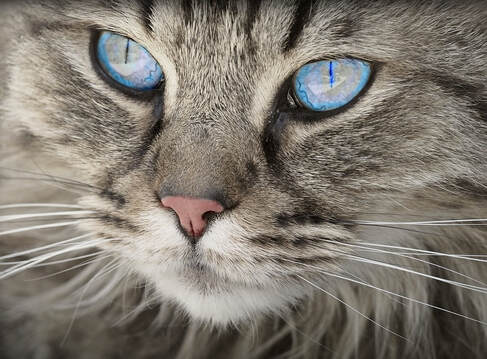|
I wrote a blog a few years back about animal shelter apologists and the concept of cognitive dissonance. This was an effort to explain how people who claim to care about the lives of animals rationalize their support for animal shelters where healthy and treatable animals are killed. It’s been a while since I touched on this topic and Sheri Cahill of the Silver Comet Animal Welfare Alliance in Georgia asked me to revisit it. So when it comes to animal shelters, what is an apologist? That is a person who defends (in essence apologizing for) what happens at a regressive animal shelter – typically the killing of healthy and treatable animals - while at the same time professing to be passionate about saving the lives of animals. We see this all the time from shelter employees, shelter volunteers, people in the rescue community and from the public. It seems inconceivable that people who claim to want to save animals would come to the defense of the killing that takes place but it happens every day across the country. Apologists tell themselves that their shelter is somehow different from other places, making it impossible to save more lives. They tell themselves that the public in their area is more irresponsible than in other places, so the shelter has no option but to end the lives of animals. They tell themselves that there is just no other way for the shelter to function because of a shortage of talent or resources. The rationalizations go on and on. Trying to understand why people behave this way is way above my pay grade and no doubt would make for a great research study by someone in the field of psychology. There are times when the people who defend the killing of animals in shelters can be reached and can be educated. In my experience, these are the people who never felt quite comfortable with the killing, but just were not sure what to do about it. I’ve heard countless times from volunteers or rescuers that they did not condone what was happening at a particular shelter, but they did not speak out because they worried they would be cut off and would not be able to help animals any more. The most polite way I can address that reasoning is to say that it is incredibly short-sighted. It means that the focus of that person is on the dog or cat they are trying to help today or tomorrow, with no regard for the dozens, or hundreds or thousands of other animals they will not be able to help. In the most direct way I can address that reasoning is to say that there is a price to be paid for silence. In the city where I work and in which I lead an animal shelter reform advocacy group, more than 33,000 animals died from 2008 to the end of 2013 when the city began making changes to the culture at the shelter. 33,000. I feel confident that volunteers and rescuers thought they were doing all they could to help individual animals during those years. But the end result is that thousands of animals died and that process may have stopped earlier if the people closest to the issue had simply spoken up and encouraged the shelter to change. There are many times, however, when there is just no conversation to be had with people who defend the killing of healthy and treatable animals. These people are so committed to the reality they have created for themselves that there is no way to break down their walls with any amount of logic or information. It is these people who are the most aggressive in their defense of shelter killing and who are the most likely not only to blame the messenger for the message, but to go on the offensive to attack anyone who has the audacity to believe the shelter can save more lives. When my advocacy group in Huntsville, Alabama, began advocating for shelter reform in 2012, we ran into a host of apologists. The live release rate at the shelter at that time was about 34% which means that 2 out of every 3 animals entering the building were destroyed. It was at this time that the shelter director said she and her staff were doing a beautiful job. She said, “I am loved here” and the statement was true. As a veterinarian, she had a huge public following of people who either did not know what was happening at the shelter or who knew about it and were sure there was no other way to function. Animals had to be destroyed, they told themselves. There is no other way, they told themselves. I wrote about the opposition to shelter reform we faced in Huntsville in my book. It was ugly, it was juvenile, and in the end, it was futile. We expected shelter employees to be upset with our efforts to hold the city accountable for how the shelter was operated using tax dollars. What we didn’t expect was the level of animosity toward us from the rescue community. We were vilified, ridiculed, the subject of a hate page on Facebook and at one point we were referred to as terrorists. We knew engaging with these people was a complete waste of time and energy; we did our best to ignore them and stay on subject with city officials and with the public. Now that the city has changed the culture at the animal shelter, our critics have gone silent for the most part. Just like they had their own version of reality when so many animals were being killed, I presume they have their own version of reality about how that change happened. It is easier to revise history and to gloss over the difficult times than it is to admit that change came about as the result of struggle. As much as I think history is important so that we do not repeat it, my satisfaction comes from the fact that things did change as a result of advocacy. My focus is less on how we got to this point than the fact that the change has been drastic and empowering. The shelter now saves approximately 97% of all animals entering the building and my hope is that there is no going back. The public has come to expect the lives of animals to be saved instead of ended and it is that expectation that may do the most good to keep the city from reverting back to the way it was before. If you live or work in a city where the animal shelter destroys healthy and treatable animals for whatever reason, please consider speaking out against that. Your focus should be on municipal accountability for how tax dollars are spent (or not spent) and not on individual people, at least at the start. You may not get a bill in the mail every month with a line item for "animal disposal," but you are paying for what happens at your local shelter and you have the right to demand better. If you learn that there are others who want to bring about shelter reform, support those people and find ways to help them if you can.
If you are one of those people who are defending the killing of animals, please ask yourself what you hope to accomplish with that behavior. It may very well be that you have become a human obstacle to change. If that is the case, you are standing in the way of progress which means you are standing in the way of saving lives. Yes, you can save a few each month while telling yourself that if it wasn’t for you or people like you, more animals would die. That would be true. But if you consider the bigger picture, you can help prevent the deaths of thousands of animals. It’s time to make a choice and to walk the walk instead of just talking about what you say you stand for.
1 Comment
|
AuthorI am an animal welfare advocate. My goal is to help people understand some basic issues related to companion animals in America. Awareness leads to education leads to action leads to change. Archives
July 2024
Categories
All
image courtesy of Terrah Johnson
|



 RSS Feed
RSS Feed